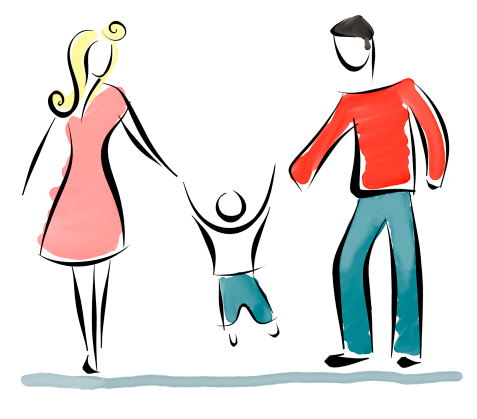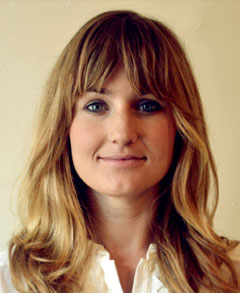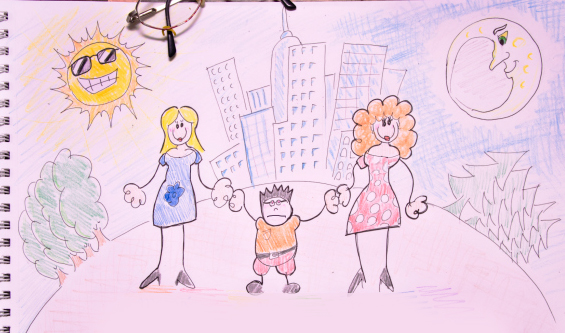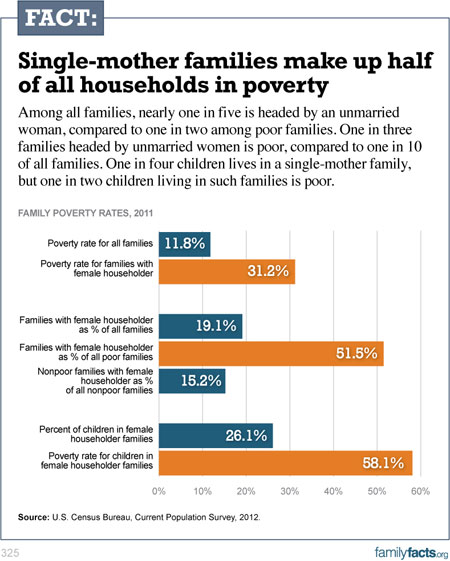November 1, 2013 – 9:00 am

We've been keeping our readers informed about the ongoing efforts in California to overturn AB 1266, the "Co-ed Bathroom Law" - efforts which have brought together a broad coalition effort in the Privacy for All Students campaign, including NOM California and NOM's political consultant Frank Schubert.
In case you missed it, Frank was interviewed last Friday for National Review Online and explained to Alec Torres why he is optimistic about the initiative underway there:
Once people become aware of [the law], then they oppose it.... We’ve done a survey and what we’ve found is that only 35 percent of voters support this law, and 51 percent oppose it. When you [talk with individuals and] go through the pro and con arguments, we end up at over 60 percent opposition to the law.
A victorious repeal of the law is almost certain if the matter can be put on the ballot. That's what the Privacy for All Students coalition is busy working to do, gathering petition signatures to meet a November 8th deadline.
To find out how you can help, visit the coalition's website today.
October 24, 2013 – 12:29 pm
The French writer Gustave Flaubert famously spent weeks sometimes pondering a single word looking for just the right one - what he called "le mot juste."

Flaubert recognized that sometimes there really is only one perfect term to describe the essence of a particular thing. Well, there is one perfect word to describe our culture's dissonant approach to marriage and family, and that word is incoherent.
An article in yesterday's Washington Times reports that there is a growing concern about "irresponsible fatherhood" in our society: "Despite myriad efforts by fatherhood programs, too many men are ending up in multiple relationships, with multiple children from multiple mothers."
An expert quoted in the article suggests that men need to "advised... to 'slow down,' 'prepare for fatherhood,' realize that a mother and child are 'a package' and 'take time' to select a loving partner and future mother."

But these efforts to address a very real concern are incoherent in a cultural context where powerful forces are pushing a radical agenda to redefine marriage and thereby necessarily redefine the roles of parents, making 'fatherhood' an expendable option and devaluing the unique services that men and women each provide in raising children.
To preserve and promote fatherhood requires first that we preserve and promote the true definition of marriage. Marriage is like a key-word for a cipher which, when you get it wrong, causes all the connected code-words to fall apart too. Fatherhood depends on the meaning of the unique and special union of one man and one woman. And for that union, le mot juste is "marriage."
October 24, 2013 – 11:32 am
A wonderful article from earlier this month in The Catholic World Report deserves to be read, studied, and shared by anyone who engages in conversation and debate over the definition of marriage.
The remarkable piece by James Kalb lays out in a compelling way how the standard for public discourse today - "the view that recently led the Supreme Court to treat restriction of marriage to opposite-sex couples as an expression of intent to harm same-sex couples" - needs to be attacked and shifted to more solid ground [emphasis added]:
 Liberal thought is entrenched as the basis for public discussion, and it doesn’t like the idea of a network of expectations and obligations to which people are subject other than those generated by state and market. What’s just, liberals believe, is for individuals to be free from all social pressure in their private lives as long as they perform their duties as employees, taxpayers, and citizens of a diverse, tolerant, and multicultural society. If people are pressured to act one way or another for some reason other than the needs of liberal institutions, that’s bigotry and discrimination, and eradicating it is one of the central duties of government.
Liberal thought is entrenched as the basis for public discussion, and it doesn’t like the idea of a network of expectations and obligations to which people are subject other than those generated by state and market. What’s just, liberals believe, is for individuals to be free from all social pressure in their private lives as long as they perform their duties as employees, taxpayers, and citizens of a diverse, tolerant, and multicultural society. If people are pressured to act one way or another for some reason other than the needs of liberal institutions, that’s bigotry and discrimination, and eradicating it is one of the central duties of government.
However strong and entrenched that way of thinking is, it needs to be disputed and overthrown.
Kalb also explains in very clear terms the importance of the definition of marriage and why it matters so deeply:
 If marriage is to be something we can rely on, it can’t be a sentimental celebration or optional lifestyle choice whose content depends on the orientation and goals of the parties. It has to be understood as something definite that, simply because of what it is, has intrinsic functions that are basic to human life. To be itself, it must therefore be understood as a union of man and woman that accepts the natural consequences of such a union, and there have to be distinct understandings of men, women, the relations between the two, and what they owe and have a right to expect from each other.
If marriage is to be something we can rely on, it can’t be a sentimental celebration or optional lifestyle choice whose content depends on the orientation and goals of the parties. It has to be understood as something definite that, simply because of what it is, has intrinsic functions that are basic to human life. To be itself, it must therefore be understood as a union of man and woman that accepts the natural consequences of such a union, and there have to be distinct understandings of men, women, the relations between the two, and what they owe and have a right to expect from each other.
Take some time to read and re-read the entire essay today.
October 8, 2013 – 10:30 am
Over at Public Discourse, Professor Mark Regnerus reports on the important new study from Canada which we told you about yesterday.
Regnerus shares his opinions on the research by Douglas Allen published in the Review of the Economics of the Household last week:
 Every study has its limitations, and this one does too.... [but] its limitations are modest in comparison to its remarkable and unique strengths—a rigorous and thorough analysis of a massive, nationally-representative dataset from a country whose government has long affirmed same-sex couples and parenting. It is as close to an ideal test as we’ve seen yet.
Every study has its limitations, and this one does too.... [but] its limitations are modest in comparison to its remarkable and unique strengths—a rigorous and thorough analysis of a massive, nationally-representative dataset from a country whose government has long affirmed same-sex couples and parenting. It is as close to an ideal test as we’ve seen yet.
The study’s publication continues the emergence of new, population-based research in this domain, much of which has undermined scholarly and popular claims about equivalence between same-sex and opposite-sex households echoed by activists and reflected in recent legal proceedings about same-sex marriage.
Read Professor Regnerus' full piece here.
October 7, 2013 – 10:55 am
The famous line from founding father John Adams comes to mind with the publication of yet another study - published in a peer reviewed academic journal - that demonstrates the negative outcomes for children when they are denied the love of either a mother or a father. Maggie Gallagher reports on the study over at NRO:
 Using Canadian census data, a very large and therefore representative database, Canadian professor Douglas Allen of Simon Frazier University finds that children raised by intact, married biological parents do better than children raised by same-sex couples.
Using Canadian census data, a very large and therefore representative database, Canadian professor Douglas Allen of Simon Frazier University finds that children raised by intact, married biological parents do better than children raised by same-sex couples.
So once again science confirms the truth about the importance of marriage that the wisdom of the ages and common sense have always told us: marriage matters because kids need and deserve a mom and a dad. Redefining marriage, though, means that kids as a norm will be denied at least one of these parents' vital role in their lives - and there are consequences, whether we like it or not. Facts are stubborn things.
September 10, 2013 – 2:47 pm
From redefining marriage to intentional single parenthood, we're seeing the prioritization of adult desires over the needs of children with increased frequency. The voices of children are silent, either because they're too young to articulate their own needs ...or they can't speak up about those needs at all.
As a society, how often do we consider the rights of donor-conceived people? The human beings who are literally 'manufactured' so that adults can end up with exactly what they want for themselves. Shouldn't birth be less about adults, and more about the life of the new person?

Alana Newman, founder of Anonymous Us
We’ve created a class of people who are manufactured, and treat them as less-than-fully human, demanding that they be grateful for whatever circumstances we give them. While fathers of traditionally conceived human beings are chased down and forced to make child support payments as a minimal standard of care, people conceived commercially are reprimanded when they question the anonymous voids that their biological fathers so “lovingly” left.
The crimes against the donor-conceived bend time and space. The adults that betray us do so before official personhood, which is the loophole through which this new form of human trafficking is made possible. Is gamete-selling all that different from baby-selling?
Today, human rights do not apply to the donor-conceived child because her humanity has been deconstructed and she is a product to please adults, a thing to service others and be consumed. She does not have a father like other people, nor a mother. She only has donors and “intended” parents. If she complains about the discrepancy, the world will ask her threateningly, would you rather not exist?
She fears what they’ll do if she answers honestly. -Alana S. Newman for MercatorNet
Today, IVF is even becoming a commodity in the stock market, which – by only a degree of separation – means in a very real way embryos are being monetized and commodified. Not much of a stretch to view many of these practices as legitimate human trafficking.
September 10, 2013 – 1:55 pm
Winnipeg Free Press examines the growing trend of single men who have decided they want children, and the fact that those children will be intentionally denied of a mother - during their upbringing and throughout their lives - is all but irrelevant.
At 42, [Trey Powell] is a new addition to the ranks of men who intentionally seek the role of single father. While some opt  for adoption, others yearn to have children with genetic ties and are willing to invest $100,000 or more to make that happen.
for adoption, others yearn to have children with genetic ties and are willing to invest $100,000 or more to make that happen.
There are no firm numbers of how many men have taken this route. It's clearly still a rarity, although Growing Generations, a leading for-profit surrogacy agency in Los Angeles, says its caseload of single men has risen steadily and totalled about 25 cases last year.
"We tell people to budget $125,000 to $150,000 for a single baby, and $150,000 to $175,000 for twins," said Stuart Bell, co-owner of Growing Generations.
Those figures include compensation of $8,000 to $10,000 for the egg donor, and at least $25,000 for the surrogate mother who gives birth after being impregnated with an implanted embryo.
Though male clients have the option of enlisting an egg donor on their own, Bell said most make their choice from a pool of women recruited by Growing Generations. The clients aren't told the names of the possible egg donors, but see videos of them and learn extensive details about their health, education and genetic history.
Like Trey Powell, [Alan] Bernstein is gay and grew into adulthood never expecting that fatherhood would be a realistic and enticing option.
Read the full article here.
August 28, 2013 – 12:44 pm
Same-sex marriage advocates will tell you "love is love". That there is zero difference between men and women, apart from sexual organs. But the differences between genders are far more than what meets the eye. Scientifically, our brains show major genetic differences as well.
Mothers and fathers play unique roles in the lives of their children because ultimately, they are complementary beings.
There is a growing number of people in our nation today who think that sex (that is, maleness and femaleness) is not an objective biological reality, but rather a social construct.
 Those who reject the objectivity of sex will often say that although male and female bodies may have some differences between them, our brains are just the same. One man, who is currently raising three “genderless children,” argued, “If you really want to get to know someone, you don’t ask what’s between their legs.”
Those who reject the objectivity of sex will often say that although male and female bodies may have some differences between them, our brains are just the same. One man, who is currently raising three “genderless children,” argued, “If you really want to get to know someone, you don’t ask what’s between their legs.”
As it turns out, male and female brains are biologically different.
In 2004 an all-star team of fourteen neuroscientists, from the University of California, the University of Michigan, and Stanford University, published findings showing that male and female brains are genetically different.
The differences between male and female brains affect many aspects of our behavior, including memory, emotion, vision and hearing, how we handle stress… and even the toys we like to play with.
In 2002, Melissa Hines of City University London, and Gerianne M. Alexander of Texas A&M University decided to conduct experiments on vervet monkeys, one of our closest biological cousins. They found that the monkeys showed “sex differences in toy preferences similar to those documented previously in children.” The boy monkeys typically preferred playing with cars and balls, while the female monkeys preferred playing with dolls and pots. (And they didn’t have parents or toy catalogues telling them which they should prefer.) -MattFradd.com
August 15, 2013 – 3:00 pm
In a 2012 landmark study on same-sex parenting (and its long-term effects on children), sociologist Mark Regnerus' identified 248 adults who were raised by couples in same-sex romantic relationships and gave reports unfavorable to the same-sex marriage agenda.

Robert Oscar Lopez
Robert Oscar Lopez bravely shares his own personal story on what it was like to be raised by two women, and what he missed out on:
Quite simply, growing up with gay parents was very difficult, and not because of prejudice from neighbors. People in our community didn’t really know what was going on in the house. To most outside observers, I was a well-raised, high-achieving child, finishing high school with straight A’s.
Inside, however, I was confused. When your home life is so drastically different from everyone around you, in a fundamental way striking at basic physical relations, you grow up weird. I have no mental health disorders or biological conditions. I just grew up in a house so unusual that I was destined to exist as a social outcast.
My peers learned all the unwritten rules of decorum and body language in their homes; they understood what was appropriate to say in certain settings and what wasn’t; they learned both traditionally masculine and traditionally feminine social mechanisms.
 Even if my peers’ parents were divorced, and many of them were, they still grew up seeing male and female social models. They learned, typically, how to be bold and unflinching from male figures and how to write thank-you cards and be sensitive from female figures. These are stereotypes, of course, but stereotypes come in handy when you inevitably leave the safety of your lesbian mom’s trailer and have to work and survive in a world where everybody thinks in stereotypical terms, even gays.
Even if my peers’ parents were divorced, and many of them were, they still grew up seeing male and female social models. They learned, typically, how to be bold and unflinching from male figures and how to write thank-you cards and be sensitive from female figures. These are stereotypes, of course, but stereotypes come in handy when you inevitably leave the safety of your lesbian mom’s trailer and have to work and survive in a world where everybody thinks in stereotypical terms, even gays.
I had no male figure at all to follow, and my mother and her partner were both unlike traditional fathers or traditional mothers. As a result, I had very few recognizable social cues to offer potential male or female friends, since I was neither confident nor sensitive to others. Thus I befriended people rarely and alienated others easily. Gay people who grew up in straight parents’ households may have struggled with their sexual orientation; but when it came to the vast social universe of adaptations not dealing with sexuality—how to act, how to speak, how to behave—they had the advantage of learning at home. Many gays don’t realize what a blessing it was to be reared in a traditional home. -LifeSiteNews
Mothers and fathers both play unique roles in a child's life. Take a look at the findings from Dr. Regnerus' study at www.familystructurestudies.com.
Heritage’s blog, The Foundry, recently shared an illuminating chart (see below) that demonstrates the connection between child poverty and being raised in single-mother households.
Today, one out of every four children lives with only his or her mother. Of those children in single-mother homes, 58 percent are impoverished. In contrast, as Heritage’s Robert Rector points out, marriage reduces the probability of child poverty by 82 percent. Growing up with a married father can have significant impact on a child’s economic, social, and psychological well-being.
…
“[R]edefining marriage further distances marriage from the needs of children and denies the importance of mothers and fathers. Redefining marriage rejects as a matter of policy the ideal that children need a mother and a father,” explains Heritage’s Ryan T. Anderson. “Redefining marriage diminishes the social pressures for husbands to remain with their wives and children, and for men and women to marry before having children,” he continues.
Read more.

Gay marriage activists have taken to claiming that redefining marriage will help children. Ryan Anderson responds that the opposite is true:
 Marriage is society's best way of ensuring the well-being of children. State recognition of marriage protects children, we saw yesterday, by encouraging men and women to commit permanently and exclusively to each other and take responsibility for their children.
Marriage is society's best way of ensuring the well-being of children. State recognition of marriage protects children, we saw yesterday, by encouraging men and women to commit permanently and exclusively to each other and take responsibility for their children.
Laws on marriage work by promoting a true vision of the institution, making sense of marital norms as a coherent whole. Law affects culture. Culture affects beliefs. Beliefs affect actions. The law teaches, and it shapes the public understanding of what marriage is and what it demands of spouses.
But redefining marriage further distances marriage from the needs of children and denies the importance of mothers and fathers. Redefining marriage rejects as a matter of policy the ideal that children need a mother and a father. (Heritage)
Dads matter. So argues Prof. Brad Wilcox in The Atlantic:
 I understand where Jennifer Aniston is coming from. Like many of her peers in Hollywood, not to mention scholars and writers opining on fatherhood these days, she has come to the conclusion that dads are dispensable: "Women are realizing it more and more knowing that they don't have to settle with a man just to have that child," she said at a press conference a few years ago.
I understand where Jennifer Aniston is coming from. Like many of her peers in Hollywood, not to mention scholars and writers opining on fatherhood these days, she has come to the conclusion that dads are dispensable: "Women are realizing it more and more knowing that they don't have to settle with a man just to have that child," she said at a press conference a few years ago.
Her perspective has a lot of intuitive appeal in an era where millions of women have children outside of marriage, serve as breadwinner moms to their families, or are raising children on their own. Dads certainly seem dispensable in today's world.
What this view overlooks, however, is a growing body of research suggesting that men bring much more to the parenting enterprise than money, especially today, when many fathers are highly involved in the warp and woof of childrearing. As Yale psychiatrist Kyle Pruett put it in Salon: "fathers don't mother."
Pruett's argument is that fathers often engage their children in ways that differ from the ways in which mothers engage their children. Yes, there are exceptions, and, yes, parents also engage their children in ways that are not specifically gendered. But there are at least four ways, spelled out in my new book, Gender and Parenthood: Biological and Social Scientific Perspectives (co-edited withKathleen Kovner Kline), that today's dads tend to make distinctive contributions to their children's lives... (The Atlantic)
Glenn Stanton at CitizenLink:
The American Academy of Pediatrics (AAP) has issued what appears to be a politically motivated statement suggesting that children raised by same-sex parents do just fine. In fact, the AAP goes so far as to suggest that children are more affected by the health of the relationship between the people raising them than by whether they are being raised by their own mother and father.
...To be clear, this recent announcement is not science, but propaganda rooted in social activism regarding the family, which is the foundational unit of humanity. That such a credentialed and well-known organization would play politics with this issue should grieve all of those who are committed to the integrity of science when it comes to the future of our children. Their well-being and health is far too important an issue to play politics with, especially of such a radical nature.
The AAP would be well-advised to stick to what the reliable and time-tested body of research tells us about what kinds of families promote the robust array of child-health: a family where children are raised by their mother and father who are in the midst of a healthy marriage.
A statement by the American College of Pediatricians in response to the AAP:
“The American College of Pediatricians reaffirms that the intact, functional family consisting of a married (female) mother and (male) father provides the best opportunity for children. The College, therefore, disputes the American Academy of Pediatrics’ (AAP) claim that supporting same-sex unions promotes the “well-being of children.” In its newly released statement, “Promoting the Well-Being of Children Whose Parents Are Gay or Lesbian,” the AAP ignores important research on risks to children in favor of the wants of adults.
“The College does not support the alteration of this time-honored and proven standard to conform to pressures from “politically correct” groups. No one concerned with the well-being of children can reasonably ignore the evidence for maintaining the current standard, nor can they or we ignore the equally strong evidence that harm to children can result if the current standards are rejected,” says Den Trumbull, MD, President of the American College of Pediatricians. “The AAP ignores generations of evidence of health risks to children in advocating for the legality and legitimacy of same-sex marriage and child-rearing.”





 Liberal thought is entrenched as the basis for public discussion, and it doesn’t like the idea of a network of expectations and obligations to which people are subject other than those generated by state and market. What’s just, liberals believe, is for individuals to be free from all social pressure in their private lives as long as they perform their duties as employees, taxpayers, and citizens of a diverse, tolerant, and multicultural society. If people are pressured to act one way or another for some reason other than the needs of liberal institutions, that’s bigotry and discrimination, and eradicating it is one of the central duties of government.
Liberal thought is entrenched as the basis for public discussion, and it doesn’t like the idea of a network of expectations and obligations to which people are subject other than those generated by state and market. What’s just, liberals believe, is for individuals to be free from all social pressure in their private lives as long as they perform their duties as employees, taxpayers, and citizens of a diverse, tolerant, and multicultural society. If people are pressured to act one way or another for some reason other than the needs of liberal institutions, that’s bigotry and discrimination, and eradicating it is one of the central duties of government. If marriage is to be something we can rely on, it can’t be a sentimental celebration or optional lifestyle choice whose content depends on the orientation and goals of the parties. It has to be understood as something definite that, simply because of what it is, has intrinsic functions that are basic to human life. To be itself, it must therefore be understood as a union of man and woman that accepts the natural consequences of such a union, and there have to be distinct understandings of men, women, the relations between the two, and what they owe and have a right to expect from each other.
If marriage is to be something we can rely on, it can’t be a sentimental celebration or optional lifestyle choice whose content depends on the orientation and goals of the parties. It has to be understood as something definite that, simply because of what it is, has intrinsic functions that are basic to human life. To be itself, it must therefore be understood as a union of man and woman that accepts the natural consequences of such a union, and there have to be distinct understandings of men, women, the relations between the two, and what they owe and have a right to expect from each other. Every study has its limitations, and this one does too.... [but] its limitations are modest in comparison to its remarkable and unique strengths—a rigorous and thorough analysis of a massive, nationally-representative dataset from a country whose government has long affirmed same-sex couples and parenting. It is as close to an ideal test as we’ve seen yet.
Every study has its limitations, and this one does too.... [but] its limitations are modest in comparison to its remarkable and unique strengths—a rigorous and thorough analysis of a massive, nationally-representative dataset from a country whose government has long affirmed same-sex couples and parenting. It is as close to an ideal test as we’ve seen yet. Pope Francis urged youth today to have the “courage” to get married and have children despite a culture that emphasizes “individual rights” over family.
Pope Francis urged youth today to have the “courage” to get married and have children despite a culture that emphasizes “individual rights” over family. Using Canadian census data, a very large and therefore representative database, Canadian professor Douglas Allen of Simon Frazier University finds that children raised by intact, married biological parents do better than children raised by same-sex couples.
Using Canadian census data, a very large and therefore representative database, Canadian professor Douglas Allen of Simon Frazier University finds that children raised by intact, married biological parents do better than children raised by same-sex couples.
 for adoption, others yearn to have children with genetic ties and are willing to invest $100,000 or more to make that happen.
for adoption, others yearn to have children with genetic ties and are willing to invest $100,000 or more to make that happen.

 Even if my peers’ parents were divorced, and many of them were, they still grew up seeing male and female social models. They learned, typically, how to be bold and unflinching from male figures and how to write thank-you cards and be sensitive from female figures. These are stereotypes, of course, but stereotypes come in handy when you inevitably leave the safety of your lesbian mom’s trailer and have to work and survive in a world where everybody thinks in stereotypical terms, even gays.
Even if my peers’ parents were divorced, and many of them were, they still grew up seeing male and female social models. They learned, typically, how to be bold and unflinching from male figures and how to write thank-you cards and be sensitive from female figures. These are stereotypes, of course, but stereotypes come in handy when you inevitably leave the safety of your lesbian mom’s trailer and have to work and survive in a world where everybody thinks in stereotypical terms, even gays.
 Marriage is society's best way of ensuring the well-being of children. State recognition of marriage protects children, we saw yesterday, by encouraging men and women to commit permanently and exclusively to each other and take responsibility for their children.
Marriage is society's best way of ensuring the well-being of children. State recognition of marriage protects children, we saw yesterday, by encouraging men and women to commit permanently and exclusively to each other and take responsibility for their children. I understand where Jennifer Aniston is coming from. Like many of her peers in Hollywood, not to mention
I understand where Jennifer Aniston is coming from. Like many of her peers in Hollywood, not to mention 



